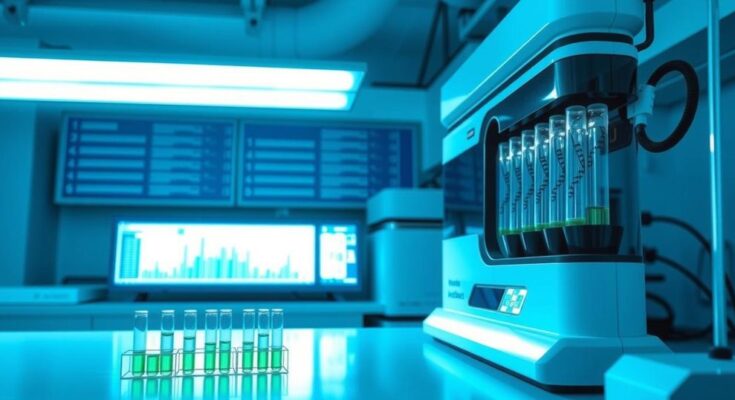Altum Sequencing has developed a blood test for monitoring treatment responses in patients with solid tumors. This technology can detect relapses up to 68 months earlier than traditional methods by analyzing circulating tumor DNA. The approach focuses on specific mutations identified from initial tumor biopsies, aiming to improve post-treatment follow-up. Integration of AI is anticipated, further enhancing diagnostic capabilities and personalization of patient care.
Altum Sequencing, a startup backed by the C3N-IA Science Park at Universidad Carlos III de Madrid, has launched a promising new technique to monitor treatment responses in patients with solid tumors, all through a simple blood sample. This innovation could change the game for post-treatment follow-ups in oncology, as detailed in a recent study published in Breast Cancer Research.
Breast cancer, particularly the HR+ subtype, often sees patients respond initially well to therapy, but around 40% may relapse eventually. The new technology applies an analysis of circulating tumor DNA, allowing researchers to detect potential relapses up to 68 months in advance, which is a significant lead time compared to traditional detection methods.
The goal here isn’t to diagnose cancer outright but to give physicians a practical tool for monitoring disease progression post-treatment. Current methods sometimes fail early detection due to sensitivity limitations. However, with next-generation sequencing—we’re talking about detecting one tumor cell amidst a million healthy ones— this tool aims to change that narrative for patients. “Our goal is not to diagnose cancer, but to provide physicians with an effective tool to monitor the evolution of the disease after treatment,” explains Joaquín Martínez-López, President of Altum Sequencing.
To use this detection methodology, the first step usually involves a tumor biopsy, so that patient-specific mutations can be identified. Blood tests then look for these mutations in the circulating tumor DNA. Marina Planas, the CEO, points out, “The advantage of our technology is that it is very minimally invasive, versatile and tailored to each tumor type.”
Beyond breast cancer, this technology’s application extends to all types of solid tumors. The company is currently pursuing the regulatory approvals needed in Europe and the U.S. Their ambition is to make this technology available globally in hospitals. “We started with hematological cancers, but focusing on lung cancer has yielded good results too. Today, we can detect one cell in a million,” said Marina Planas. She’s optimistic that soon that number can decrease to one in ten million.
As for future steps, Altum Sequencing is looking to integrate generative artificial intelligence into its technology by the end of the year. They’ve already implemented machine learning algorithms and aim for enhanced diagnostic accuracy, optimization of treatments, and providing personalized information to patients.
The startup enjoys support from multiple organizations, including the Community of Madrid and the European Regional Development Fund. They also collaborate with various hospitals and research centers to ensure the efficacy of their approach, including the 12 de Octubre Hospital and the Hospital Regional de Málaga, where the primary investigator, Iñaki Comino, has played a crucial role in the study.
Altum Sequencing is making strides in oncology by developing a blood-test-based tool for monitoring solid tumors. The company aims to enhance post-treatment follow-ups and early relapse detection, which could significantly improve patient care. With future integration of AI technologies, they expect to refine diagnostics and treatment plans further, marking a new era in cancer monitoring. Regulatory approvals are in progress, and the reach of this technology could one day be universal in the fight against cancer.
Sumber Asli: www.news-medical.net




